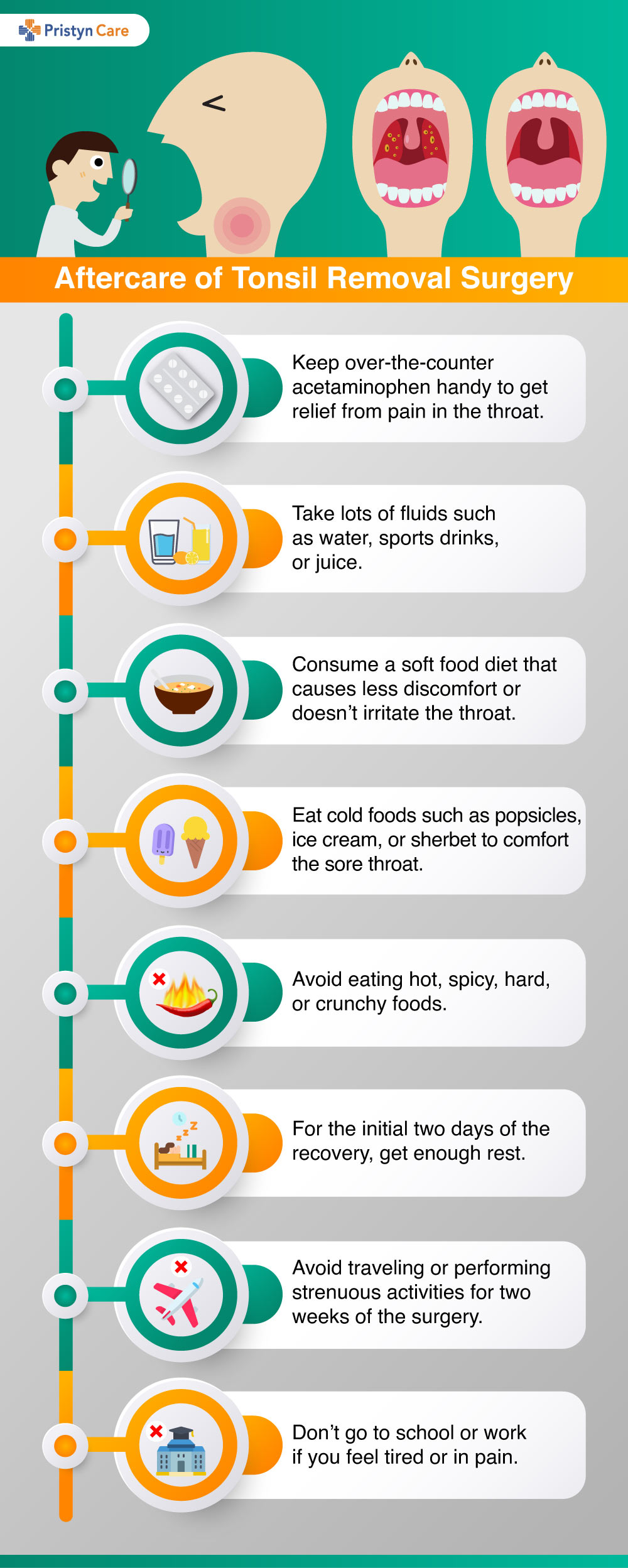![]() Views: 8,454
Views: 8,454
What Happens During Tonsils Removal Surgery?
This results in its swelling and other symptoms. In severe cases, doctors recommend removing the tonsils completely. .
Dedicated Support at Every Step!
Our Doctors are available 24 hours a day, 7 days a week to help you!
Read more: What do the tonsils do?
Table of Contents
Who should undergo a Tonsil Removal Surgery?
There are various reasons a patient has to undergo a tonsillectomy. It can be due to frequent episodes of tonsillitis that makes it difficult to swallow food, white patches on the throat or the throat seem swollen.
Medical problems may include difficulty in breathing due to enlarged tonsils, loud snoring, recurrent episodes of sleep apnea, or even bleeding from the throat.
But people remain skeptical of undergoing surgery as they are unaware as to how doctors perform this procedure. Read on if you are undergoing a tonsil removal surgery and want some basic questions answered.
No Cost EMI, Hassle-free Insurance Approval
How To Prepare For Tonsils Removal Surgery?
Once the doctor diagnoses that the tonsils need to be removed, they recommend several preoperative laboratory studies.
Apart from diagnostic tests, the doctor also prescribes some instructions that need to be followed to minimize any chances of complications.
Also Read: Complications of Tonsillitis
- A week before the surgery is scheduled, patients should not take aspirin or any other medication containing aspirin to lower the risk of bleeding.
- If a child is undergoing a tonsillectomy, talk to them openly and explain to them the whole procedure.
- Do not eat or drink anything prior to the surgery including water, candy or chewing gum. This can interfere with the anesthesia effect and cause complications.
- Avoid taking nonsteroidal anti-inflammatory drugs, such as ibuprofen, Advil before a week of the surgery.
- For the first two to three days of the surgery, ask someone to take care of you.
Moreover, the doctor instructs to not eat or drink anything after dinner to be on an empty stomach before the surgery.
What Is The Procedure For Tonsillectomy?
The surgical removal of tonsils-also known as tonsillectomy- is performed on an outpatient basis. This implies that you can go back home the same day of the surgery. However, you’ll be able to go back only if the ENT doctor provides approval.
A tonsillectomy is performed under the influence of anesthesia. An anesthesiologist administers anesthesia- local or general- to induce sleep. The anesthetist administers the anesthesia through an intravenous channel. While the anesthesiologist injects the anesthesia, the heart rate, as well as pulse, is continuously monitored.
Normally, before any surgery is performed inside the mouth, there is a method of intubation. In this procedure, the doctor passes a breathing tube through the mouth into the airway. But before a tonsil surgery, the tube is passed through the nose and down the airway.
Once the patient is asleep, the doctor starts with the surgery. With the help of a special instrument that keeps the mouth open, the doctor is able to carry out the surgery.
During a tonsillectomy, the surgeon takes out the tonsils either with a scalpel, laser or heated instrument. The incision is immediately cauterized to control the bleeding. Sometimes, the adenoids are also removed in the same procedure.
Controlling the bleeding and sealing it sutures marks the end of the surgery. After this, the patient is shifted to a recovery room.
How long does tonsil removal surgery take to complete?
The whole procedure of tonsillectomy is usually over within an hour. However, it can exceed over an hour if the adenoidectomy is also carried out.
How To Recover After The Tonsils Removal Surgery?
Although it is a day-care procedure, the complete recovery from a tonsillectomy takes time. When the patient wakes up after the tonsil removal surgery, the throat may be sore that can last up to several days. It is quite common to feel dizzy or tired due to the effect of anesthesia.
Aftercare of Tonsil Removal Surgery
Here are a few tips that can help you or your child in the recovery of the tonsillectomy.

- Keep over-the-counter acetaminophen handy to get relief from pain in the throat.
- Take lots of fluids such as water, sports drinks, or juice.
- Consume a soft food diet that causes less discomfort or doesn’t irritate the throat.
- Eat cold foods such as popsicles, ice cream or sherbet to comfort the sore throat.
- Avoid eating hot, spicy, hard or crunchy foods.
- For the initial two days of the recovery, get enough rest.
- Avoid traveling or performing strenuous activities for two weeks of the surgery.
- Don’t go to school or work if you feel tired or in pain.
Read more: How to take care of children after tonsillectomy?
How long does it take to fully recover after Tonsil Removal Surgery?
The recovery of a patient after tonsil removal surgery depends majorly on the patient's ability to heal. Generally, it takes 2-5 days for an individual to recover and resume their daily activities. However, the pain in the throat may continue for a week or more.
What are The Risks of undergoing Tonsil Removal Surgery?
Every type of surgical procedure possesses some kind of risk. Some potential common side-effects that can occur after tonsillectomy are-
- Swelling
- Infection
- Bleeding
- Sore throat
- Complications due to anesthesia
- Damage to the teeth
Also Read: Risks of Undergoing Tonsil Removal Surgery
However, if these complications don’t seem to cure then contact your ENT doctor without any further delay.
If you are still having some questions related to a tonsillectomy, you can visit the nearest Pristyn Care ENT clinic or give us a call on the above number.
Read more:
FAQs
A patient generally takes about 2-5 days to recover completely after tonsil removal surgery. However, this can vary. You can go back to work after 7 days of the procedure.
Tonsillectomy entails removing tissues from the back of the throat. Hence, it is considered as one of the common major surgical procedure.
Yes, the patient can brush the teeth gently after removing the tonsils. Along with this, avoid harsh gargling or it can cause bleeding.










